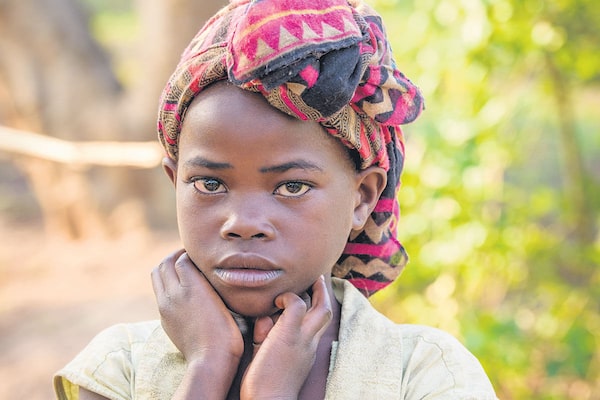
World Vision’s first major campaign under the Power of Her initiative is an educational project in the Democratic Republic of the Congo.WORLD VISION
Tens of millions of women and girls around the world face challenges that are unimaginable to most Canadians. Gender-based violence and discrimination, injustice, poverty and denial of basic human rights are part of their daily existence, and there’s little hope of change without help.
World Vision Canada believes it’s time to ramp up our support to women and girls, and yesterday in Toronto launched the Power of Her initiative to do just that.
“Building on the organization’s enhanced focus on gender equity and the needs of women and girls, the new initiative’s first major project will be to support girls’ education in the Democratic Republic of Congo, where 34 per cent of women are not literate,” says Janice Moro, director of philanthropy at World Vision Canada.
While Power of Her is positioned specifically as a women in philanthropy initiative, men and boys are a big part of the picture, and it’s important to ensure all voices are heard on gender equality, she says.
This was the approach in developing the program, which included facilitated discussions with groups of both men and women in four major cities across Canada.
“We believe that if we are truly going to transform the world for all our girls and boys, we must begin by intentionally addressing the barriers of gender injustice – both at home and abroad,” says Ms. Moro. “For these reasons, we calculate the myriad of factors working against women and girls, and then apply an integrated approach to gender equality and mainstream women’s and girls’ perspectives across all our projects.”
To highlight the need for action and the decision to focus the first major campaign on the Democratic Republic of Congo, Ms. Moro points out that nine of the top 10 most difficult countries for girls to be educated in are in sub-Saharan Africa.
Societies with greater gender equality enjoy more sustainable development, faster economic growth and better prospects for their children. Yet in many places, discrimination and violence against girls and women is still rampant.
— Janice Moro, World Vision Canada director of philanthropy
But it’s not just an African problem. UNESCO estimates that 130 million girls between the ages of six and 17 are out of school and 15 million primary school-aged girls will likely never enter a classroom in their lifetime.
“We believe girls are born with the same inherent rights as boys, and that needs to matter everywhere in the world,” says Ms. Moro. “Societies with greater gender equality enjoy more sustainable development, faster economic growth and better prospects for their children. Yet in many places, discrimination and violence against girls and women is still rampant.”
Toronto businesswoman and philanthropist Joan Kelley Walker is a long-time supporter of World Vision Canada and is enthusiastic about Power of Her. She believes the initiative will help engage Canadians, particularly women and girls, more actively in World Vision’s gender equality work.
“While gender equality is nothing new for World Vision – they’ve been doing it for about six decades – this new initiative will bring it into focus within Canada because it’s really important and timely,” adds Ms. Walker, whose work with World Vision Canada began 20 years ago.
“I had an immediate sense of trust because the staff were so heart-felt and genuine,” she says.
What followed were visits with her husband, Donald Walker, to World Vision projects they were supporting in different parts of the world.
“I know a lot of people aren’t able to do that, but we wanted to see how the funding was supporting real tangible outcomes,” says Ms. Walker. “And the more involved we got, the more information that we had, the more we realized that not only is World Vision strategic, but it’s also effective and making a huge, positive impact on so many people around the world.”
Recent projects that support girls’ education have seen significant impact. For example, in India, where toilets have been constructed in 20 schools impacting over 1,000 girls and motivating them to stay in school; and in Jordan, where 28 classrooms have been constructed and furnished now hosting 690 Jordanian and Syrian students with 14 of these classrooms directly benefiting girls.
Produced by Randall Anthony Communications. The Globe’s editorial department was not involved in its creation.